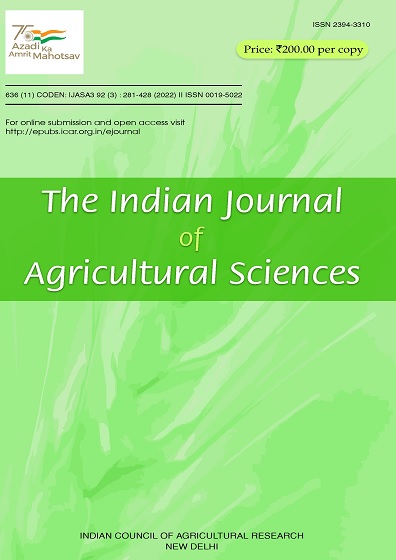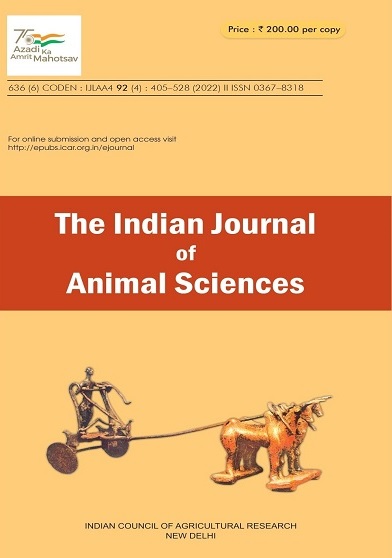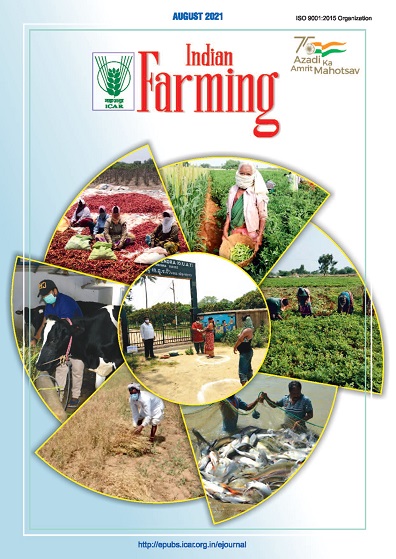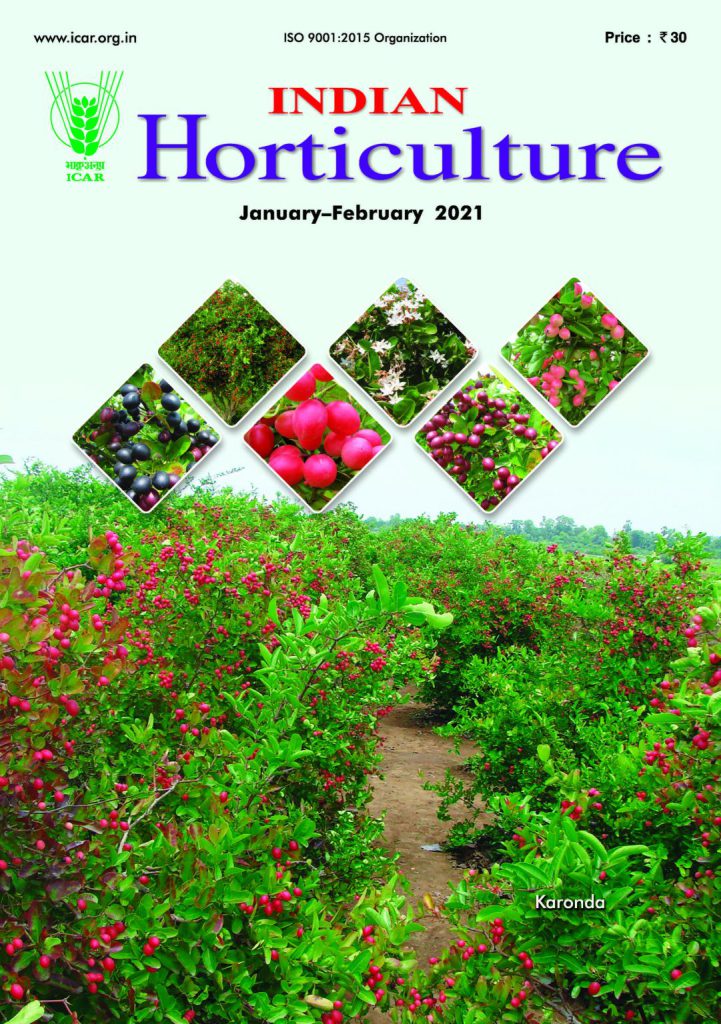English Editorial Unit
In 1906, The Agriculture Journal of India and The Memoirs of the Department of Agriculture in India, were started to be published by the Imperial Agricultural Research Institute, Pusa. These journals are the predecessors of the modern ICAR Journals, and provided a permanent record under one cover the practical results of agricultural research work throughout India.The Publications and Information Division was established in 1929 along with the establishment of ICAR. In 1931, The Indian Journal of Agricultural Sciences, and The Indian Journal of Veterinary Science and Animal Husbandry were started to encourage exchange of ideas among research workers engaged in these fields. In 1931, The Agricultural Journal of India was renamed as Agriculture and Livestock in India. F.M. de Mello, the Editor of the Journal, gave it a popular slant and with this change in approach the journal was given the name of Indian Farming in 1940. In 1995,to enhance public awareness about the activities of ICAR this Directorate started ICAR Reporter and ICAR News.In 2010, with the advent of ICT the research journals were made available online (https://epubs.icar.org.in: Indian Agricultural Research Journals) and placed in open access. This platform was developed under NAIP and now hosts 50 journals belonging to ICAR funded societies. Its facilities include online article processing system, referee system and archives. The portal has archives of back volumes of research journals till 1994 pertaining to Indian Journal of Agricultural Sciences (280 issues) and Indian Journal of Animal Sciences (292 issues). Whereas the popular journals namely Indian Farming (106 issues) and Indian Horticulture (60 issues) are also hosted. About 37,000 articles are available online globally in open access.
The vision of the English Editorial Unit is to manage English Publications for enhancing knowledge base of all interested in agriculture. Its mission isto develop and disseminate useful agricultural knowledge in English, being generated through research, education and extension using print and e-knowledge resources up to the last mile across the globe for enhancing production and productivity. It has some objectives which are: To collate, compile, publish and disseminate useful agricultural knowledge in English. To plan and coordinate the dissemination of agricultural information in English at national and international levels.To manage e-platforms for bringing out open access research journals and semi technical journals.To bring out e-books and books on agriculture, animal husbandry, fisheries and allied sciences including home sciences using state-of-the-art information and communication technologies.To provide literature for strengthening and promoting research, education and extension.
In 2022, a new OJS version 3.3.0-14 (https://epubs.icar.org.in) was developed and implemented for the journals. The Indian Journal of Agricultural Sciences and The Indian Journal of Animal Sciences, the flagship research journals of ICAR have been put on the open access mode. The journals having international fame have a wide clientele. These journals received a total of 3,500 (Agricultural Sciences) and 1,928 (Animal Sciences) submissions, respectively during the reporting period. The use base of the journals is expanding and 3,273 and 2,125 new users have associated making the total tally to 40,926 (Agricultural Sciences) and 22,130 (Animal Sciences) users. The journal website was visited nearly 45,000 times with audience belonging to 143 countries. The journals have considerable metrics, viz. impact factor and H index are 0.37 and 29 for Agriculture and 0.31 and 23 for Animal Sciences given the fact these are multi-disciplinary in nature.
Popular periodicals like Indian Farming and Indian Horticulture were brought out for outreach to the masses. Special issues of the Indian Farming were brought out on varied themes like Farmer FIRST Success Stories, Reimagining Rainfed Agro-ecosystems and International Year of Millets 2023. A special issue of the Indian Horticulture was bought out on Plantation Crops.
During the year, Digital Object Identifier (DOI) number allotment to the articles for both the research journals was introduced which will benefit the authors as well as journal immensely. To provide authentic knowledge to readers of the research journals plagiarism checker software iThenticate was subscribed. For facilitating publication of the books, e-book platform was developed.
Under the books publication programme of the English Editorial Unit, six new titles were published namely Stingless Bees – An Unexplored Pollinator in India; Textbook of Ergonomics and Safety in Agriculture; Textbook on Forages; Ravine Land Management : Principles, Practices and Strategies; Textbook of Pet animal Management; Textbook of Fundamentals of Agricultural and Animal Husbandry Extension; Textbook on Physical Chemistry and Mineralogy of Soils; Textbook of Principles and Practices of Weed Management; Textbook of Environmental Agrometeorology; and Sugarcane Crop Management Practices in India.
The in-house publication like ICAR Reporter and ICAR News are also available on ICAR website for wider global reach. These are viewed in about 140 countries world over.




